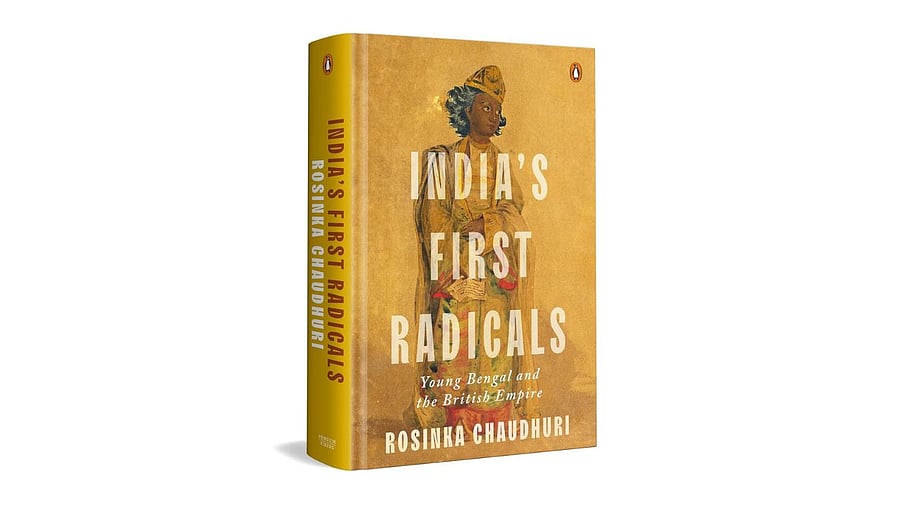
Image courtesy Penguin
October 1870. The Manchester Guardian, Glasgow Herald, and other British newspapers reprinted a piece titled Young Bengal, originally published by The Times. In it, a line, full of colonial gaze, tried to contain the intellectual wildfire that had been lit in the lecture halls of Hindu College four decades earlier. “Nothing in all India is more puzzling to an Englishman than the bent and tendency of thought of this subtle, inquiring, intriguing, doubting, mocking, and yet essentially childlike Bengalee mind.”
To chart the history of 19th-century Bengal, or India, through the corridors of ‘social reform’ is to summon the familiar faces: Rammohun Roy with his reasoned religiosity and Vidyasagar with his reformist pragmatism. But such a telling flattens the terrain and forgets the tremors of the 1830s and 40s — wherein lies a more fugitive, less institutionally palatable moment — the years of ‘Young Bengal’. Guided by the flamboyant, half-Portuguese, wholly revolutionary figure of Henry Louis Vivian Derozio, the Young Bengal group — his students at Hindu College — represented what Chaudhari refers to as ‘India’s First Radicals’. She places them within the framework that Benedict Anderson would later term the “vernacularising nationalist intelligentsia”.
In confronting racial, gendered, and caste-based injustice and in initiating the formation of what was arguably India’s first political party, Young Bengal gave shape — however embryonic — to the idea that political modernity in India could no longer be a derivative discourse. As Chaudhuri argues, the ideological lexicon of Young Bengal was remarkably ahead of its time. These were not abstract liberal ideals imported from the West but principles wrested from the lived contradictions and articulated through a uniquely subcontinental grammar.
In one of their most significant articulations of political intent, the 1843 resolution of the Bengal British India Society (BBIS) pledged to admit “all persons anxious to promote the good of India,” irrespective of “caste, creed, place of birth, or rank in society.” That this statement predates by nearly a century the principles enshrined in the Indian Constitution is a testament to how forward-looking and foundational the group’s thinking truly was. In recognising their support for peasant rights and their capacity to conceptualise the Indian peasantry as a politically oppressed class — Chaudhuri identifies the emergence of a distinctly Indian notion of “the people,” one not yet fully national but already gesturing towards a collective identity shaped by systemic exploitation. Within the evolving vocabulary of rights, identity, and representation, the Young Bengal movement occupies a curiously under-examined yet foundational space. This early liberal-radical tradition articulated a persuasive, if still inchoate, sense of popular sovereignty.
The BBIS embodied the first serious attempt to craft a political institution with a modern, quasi-national orientation — suggestive of a political party in the modern sense. While its operational lifespan was truncated — especially after the death of Dwarkanath Tagore, whose patronage was crucial — its ideological resonance far outlived its formal existence. R C Majumdar acknowledged that both the name and purpose“indicate the growth of a sense of unity of the people of India,” what he termed “the first essence of nationalism.” That such an ambitious project could emerge in the 1840s — at a time when the vocabulary of (political) nationalism was being formed, is a reminder that in privileging the triumphant trajectories, historians have too often overlooked the radicalisms that flared and flickered before the canon was written. Young Bengal was dismissed by contemporaries as too irreverent, too Westernised, even “anti-national” (a phrase Surendranath Banerjee would later use). The brilliance of Chaudhari’s intervention lies not only in reclaiming Young Bengal but also in methodically pushing back the genealogies of nationalism, citizenship, and secular modernity by several decades — thus unsettling any teleologies that begin Indian political self-awareness with the Congress or other ‘popular’ movements.